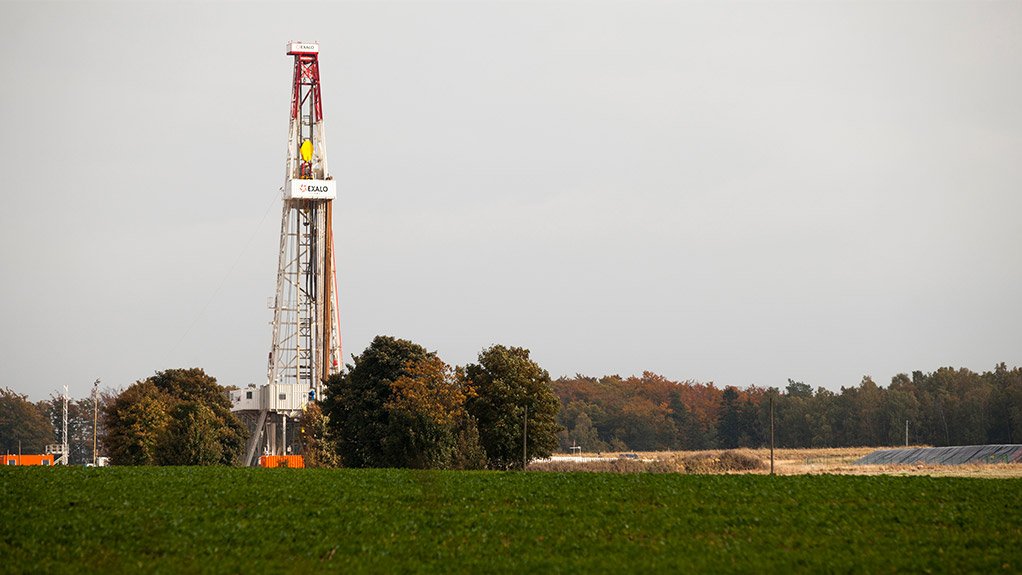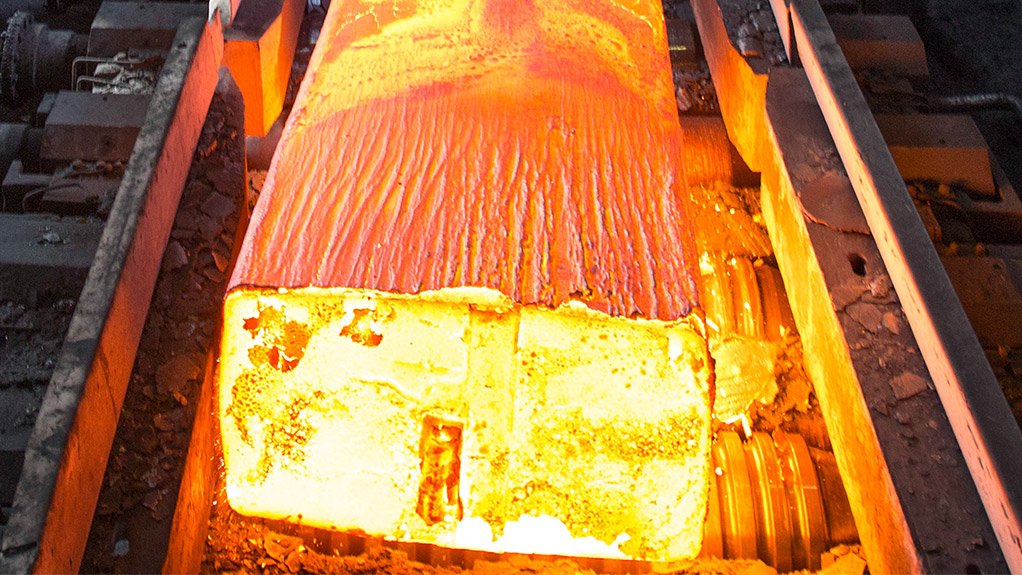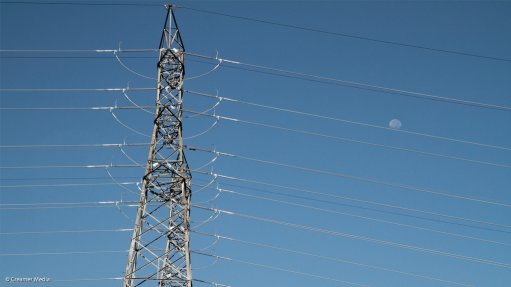South African steel industry needs protection policies



POLAND SHALE GAS The discovery of and exploration for shale gas and gas finds across the world can reduce gas prices which will benefit steel producing companies that use gas to manufacture steel
Photo by Bloomberg
STEEL PROTECTION For South Africa steel industry to boost the manufacturing industry, it should consider protection policies and beneficiation of the steel value chain
Photo by Bloomberg
Owing to the discovery of and exploration for shale gas in the US and Canada, as well as gas finds off Mozambique and Asia, the global steel industry is set to undergo a radical makeover, but South Africa may not immediately benefit from the lower gas prices, states advisory company Deloitte consulting director Eugene de Klerk.
“Gas prices are set to remain at historic low levels for the next three decades and are set to reduce the cost of energy, which will force steel companies worldwide to rethink their business model, as 40% of its costs are energy related.”
He adds that, although coal was cheaper to use in the production of iron, using a direct reduced iron (DRI), this has now changed owing to the availability of gas and cheaper prices for each ton of iron produced.
Citing a Deloitte report, ‘The Remaking of the Global Steel Industry: Lower Cost Natural Gas and Its Impact’, De Klerk notes that most steel-producing countries that use gas to manufacture steel are set to benefit from a 30-year outlook of low gas prices.
The use of gas instead of coal in the DRI stage of steel production leads to a higher quality of iron in the steel making process.
The price of gas-produced DRI, compared with coal-produced DRI, has been higher since the early 2000s. However, this changed in 2010, when gas-produced DRI dipped below coal-produced DRI at $50/t of crude iron. This lower price trend is set to persist well beyond 2030.
Benefit for South Africa
De Klerk notes that South Africa is not in a position to benefit from the lower gas prices needed for use in DRI production; this creates pig iron used in the steelmaking process.
A lack of investment, skills development and the necessary infrastructure to supply gas to key steel making companies is the main reason why South Africa will not benefit from this global trend, he says.
However, for South Africa to benefit and for its steel industry to boost the manufacturing industry through the steel value chain and create employment opportunities, the country can take several important steps to reshape the steel industry, says De Klerk.
“South Africa’s steel industry should be beneficiating its steel much further along the value chain to benefit as much as it could to support the development of the manufacturing industry.”
Before 1985, the steel industry and related value chain production of steel-based products were a huge contributor to creating employment, owing to a full steel value chain, says De Klerk, who notes that, owing to the removal of protection policies (or anti-dumping legislation) for the South African economy, there have been instances where manufacturers in the steel value chain have imported steel at a cheaper price cheaper than the price of steel sold by companies in South Africa.
The country currently processes significant volumes of steel up to the intermediate state, but the steel is exported to other countries for further beneficiation, only to be sold back to South Africa at a higher value.
To further develop the steel value chain, protectionist policies need to be put in place to rebuild the intermediate steel value chain, says De Klerk.
He adds that one of the key drivers for job creation in the steel industry is the level of protection the industry enjoys. “South Africa levies low import tax on steel, yet there are major steel-producing countries that levy 100% tax on imported steel to protect its domestic industry,” he says.
South Africa should investigate similar options to protect its own industry; however, imposing tariffs may not be the best solution, as it poses the risk of contravening World Trade Organisation (WTO) rules, De Klerk notes.
South Africa’s trade tariffs regime was shaped at the General Agreement on Trade and Tariffs (GATT), the predecessor to the World Trade Organisation. The GATT’s last round of negotiation was in Uruguay in 1992. According to the GATT, South Africa is inexplicably classified as a developed country and has limited room to manoeuvre with regard to imposing tariffs.
“As such, it might be worthwhile for South Africa to revisit this classification,” De Klerk notes.
He adds that, according to Deloitte’s global competitiveness survey, published in 2011, South Africa was placed about twenty-first in 2010, with expectations of being nineteenth in 2013. However, South Africa, was placed twenty-fourth in 2013 and is expected to drop to twenty-sixth place on the global competitiveness scale by 2015.
“South Africa is becoming an uncompetitive, unproductive economy and its steel industry is not price competitive. South Africa does not compare favourably with other steel producing countries and this is reflected in the number of mothballed steel plants. We have to deal with non-delivery and education to create the right economic climate for investment,” De Klerk points out, adding that protectionism could draw investment and create local demand in the steel industry.
If South Africa can improve its competitiveness, create an investor-friendly environment and increase employment and the skills base, and grow its manufacturing industry, it could increase its contribution to the gross domestic product to about 25%, which had dropped to below 12% in 2010 and currently remains below 15%.
Steel Industry Beneficiation
De Klerk says South Africa needs to create downstream links between raw materials and the finished product to create downstream manufacturing opportunities.
Further, he comments that government’s efforts in urging South African companies to buy steel locally are commendable, but only a holistic reform of the sector will lead to the creation of a steel value chain, which will, in turn, support job creation significantly.
However, the two most commonly cited obstacles to successful beneficiation are power supply and a shortage of skills.
The skills shortage challenge is being addressed in the long term through improved access to further education and training colleges to help boost technical skills, adds De Klerk.
Cheap and reliable power supply has been a challenge in South Africa since 2008. The cost of energy has increased significantly, partly to fund its build programme to create new generation capacity. This has led to an increase in tariffs, notes De Klerk.
“What South Africa needs is a regional framework with its neighbours for the supply of inputs, such as gas, as well as any excess electricity to neighbouring countries to help them create their own beneficiation industry and subsequently spur demand for South African steel, electricity and, possibly skills,” he concludes.
Article Enquiry
Email Article
Save Article
Feedback
To advertise email advertising@creamermedia.co.za or click here
Press Office
Announcements
What's On
Subscribe to improve your user experience...
Option 1 (equivalent of R125 a month):
Receive a weekly copy of Creamer Media's Engineering News & Mining Weekly magazine
(print copy for those in South Africa and e-magazine for those outside of South Africa)
Receive daily email newsletters
Access to full search results
Access archive of magazine back copies
Access to Projects in Progress
Access to ONE Research Report of your choice in PDF format
Option 2 (equivalent of R375 a month):
All benefits from Option 1
PLUS
Access to Creamer Media's Research Channel Africa for ALL Research Reports, in PDF format, on various industrial and mining sectors
including Electricity; Water; Energy Transition; Hydrogen; Roads, Rail and Ports; Coal; Gold; Platinum; Battery Metals; etc.
Already a subscriber?
Forgotten your password?
Receive weekly copy of Creamer Media's Engineering News & Mining Weekly magazine (print copy for those in South Africa and e-magazine for those outside of South Africa)
➕
Recieve daily email newsletters
➕
Access to full search results
➕
Access archive of magazine back copies
➕
Access to Projects in Progress
➕
Access to ONE Research Report of your choice in PDF format
RESEARCH CHANNEL AFRICA
R4500 (equivalent of R375 a month)
SUBSCRIBEAll benefits from Option 1
➕
Access to Creamer Media's Research Channel Africa for ALL Research Reports on various industrial and mining sectors, in PDF format, including on:
Electricity
➕
Water
➕
Energy Transition
➕
Hydrogen
➕
Roads, Rail and Ports
➕
Coal
➕
Gold
➕
Platinum
➕
Battery Metals
➕
etc.
Receive all benefits from Option 1 or Option 2 delivered to numerous people at your company
➕
Multiple User names and Passwords for simultaneous log-ins
➕
Intranet integration access to all in your organisation



















